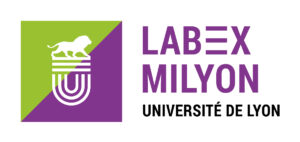 Funded by Labex MiLyon Dates : September 2021 – September 2023
Funded by Labex MiLyon Dates : September 2021 – September 2023
Collaboration with Eric Van Reeth (Creatis, Lyon)
Magnetic Resonance Imaging (MRI) is an extremely important anatomical and functional imaging technique, widely used by physicists to establish medical diagnosis. Acquiring high resolution volumes is desirable in many clinical and pre-clinical applications to accurately adapt the treatment to the measurements, or simply obtain highly resolved images of small anatomical structures. However, directly acquiring high-resolution volumes implies: i) long scanning times, which are often not tolerated by patients and children, and ii) images with low signal-to-noise ratio. Therefore, it is of particular interest to quickly acquire low-resolution volumes, and enhance their resolution as a post-processing step.
This project aims at developing new techniques to build super-resolution images for 3D MRI, that can take into account more physical constraints, such as prior medical knowledge, and to derive efficient machine learning algorithms suited for large scale data, with theoretical guarantees. In particular, we explore specialized piecewise smooth reconstruction variational methods, like the Mumford-Shah (MS) and the Total Variation (TV) variants, and to adapt their fitting terms as well as their optimization algorithms. The main originality of this project is to combine resolution enhancement and segmentation in MRI (usually performed as two distinct post-processing steps), starting from the MS model, a seminal tool originally designed for image denoising and segmentation tasks. This approach will improve the quality of the reconstruction both in terms of sharpness and smoothness, and help the doctors with reaching a diagnosis.

